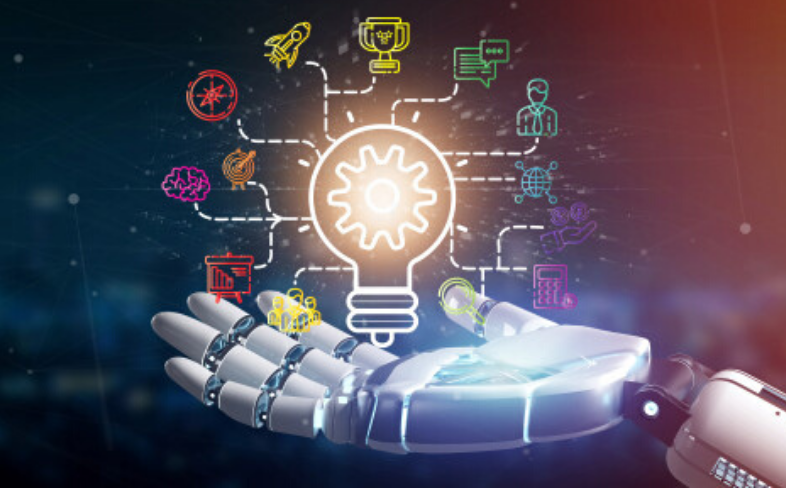Artificial Intelligence (AI) has become an integral part of our daily lives, revolutionizing various aspects of society. From communication to healthcare, transportation to entertainment, AI has made remarkable contributions, enhancing efficiency and convenience. In this article, we will explore the wide-ranging applications of AI in different fields and discuss how it has transformed our everyday experiences.
Introduction
AI, the simulation of human intelligence in machines, has brought about significant advancements in technology. Its ability to analyze vast amounts of data, learn from patterns, and make intelligent decisions has made it incredibly useful in numerous domains.
Understanding AI
Before delving into the practical applications of AI, it is important to grasp the fundamentals of this technology. AI refers to the development of computer systems that can perform tasks requiring human intelligence, such as speech recognition, problem-solving, and decision-making. Machine learning, natural language processing, and neural networks are some of the key techniques used in AI.
AI in Communication
AI has revolutionized communication by enabling more efficient and personalized interactions. Chatbots, powered by AI, are employed by various businesses to handle customer queries and provide instant support. Virtual assistants like Siri, Google Assistant, and Alexa utilize AI algorithms to understand user commands and provide relevant information.
AI in Healthcare
In the healthcare sector, AI has the potential to save lives and improve patient care. Medical professionals can leverage AI-powered diagnostic systems to analyze medical images, detect abnormalities, and aid in the early diagnosis of diseases. AI algorithms can also predict the likelihood of infections, assisting in preventive measures. Additionally, AI-driven robots can perform repetitive tasks in healthcare facilities, reducing the workload on healthcare staff.
AI in Transportation
AI has transformed transportation by making it safer and more efficient. Self-driving cars, equipped with AI algorithms, can navigate roads, detect obstacles, and make real-time decisions. AI-powered traffic management systems optimize traffic flow, reducing congestion and minimizing travel times. Moreover, ride-hailing services employ AI to match drivers and passengers, ensuring a seamless experience.
AI in Entertainment
In the realm of entertainment, AI has brought about personalized recommendations and immersive experiences. Streaming platforms like Netflix and Spotify leverage AI algorithms to analyze user preferences and suggest relevant content. Virtual reality (VR) and augmented reality (AR) technologies, powered by AI, provide captivating and interactive experiences in gaming and media.
AI in Education
AI is reshaping the education landscape, enhancing personalized learning, and improving academic outcomes. One area where AI is making a significant impact is in the field of artificial intelligence courses. Intelligent tutoring systems that utilize AI algorithms can adapt to individual student needs, providing tailored instructions and feedback specific to the Artificial Intelligence Course curriculum. These systems analyze the progress and performance of each student, identifying areas where additional support or clarification may be required.
AI in Smart Homes
Smart homes leverage AI to automate tasks and enhance comfort. AI-powered voice assistants, integrated with various home devices, enable control through voice commands. These assistants can adjust lighting, temperature, and security settings based on user preferences. AI algorithms can learn user behaviour patterns to optimize energy consumption, increasing energy efficiency.
AI in Personal Assistants
Personal assistants have become increasingly intelligent due to AI advancements. They can perform tasks such as setting reminders, managing schedules, and organizing emails. AI-powered personal assistants can also learn user preferences over time and provide proactive suggestions and recommendations.
AI in E-commerce
AI has revolutionized the e-commerce industry, offering personalized shopping experiences and improving customer satisfaction. AI algorithms analyze user behaviour, purchase history, and preferences to provide tailored product recommendations. Chatbots integrated into e-commerce platforms enhance customer support by addressing queries and assisting with purchase decisions.
AI in Customer Service
AI-powered chatbots and virtual assistants have significantly improved customer service experiences. They can handle a high volume of customer queries simultaneously, providing quick and accurate responses. AI algorithms enable chatbots to understand natural language, anticipate customer needs, and offer personalized solutions.
AI in Financial Services
In the financial sector, AI has streamlined processes and improved decision-making. AI algorithms can analyze financial data, detect fraudulent activities, and mitigate risks. Automated investment advisors utilize AI to provide personalized investment strategies based on individual goals and risk tolerance. AI-powered chatbots in banking facilitate customer interactions, offering assistance with transactions and account management.
AI in Cybersecurity
As the threat landscape evolves, AI plays a vital role in strengthening cybersecurity defences. AI algorithms can detect and prevent cyber threats by analysing patterns and identifying anomalies in network traffic. Machine learning models can continuously learn from new attack patterns and update security measures accordingly, making them more adaptive and effective.
AI in Agriculture
AI has the potential to revolutionize agriculture, optimizing crop production and ensuring food security. AI-powered systems can monitor crop health, detect diseases, and provide targeted treatments. Drones equipped with AI algorithms can survey vast agricultural fields, collecting data for precision farming. AI-based predictive analytics can aid in predicting crop yields and optimizing resource allocation.
AI in Environmental Conservation
AI is being harnessed to address environmental challenges and promote conservation efforts. AI algorithms can analyze satellite imagery to monitor deforestation, detect illegal activities, and protect wildlife habitats. AI-powered sensors and monitoring systems help manage water resources, reduce energy consumption, and optimize waste management practices.
Conclusion
Artificial Intelligence has transformed various aspects of daily life, making our experiences more efficient, convenient, and personalized. From communication and healthcare to transportation and entertainment, AI has revolutionized industries, bringing about significant advancements. As AI continues to evolve, its potential to create a positive impact in our lives is boundless.






More Stories
12 Benefits of Using Yext for Your SEO Strategy
How a Revops Agency Can Eliminate Chaos and Create Revenue Clarity
Why Exhibit Fabrication Is the Key to Memorable Brand Experiences